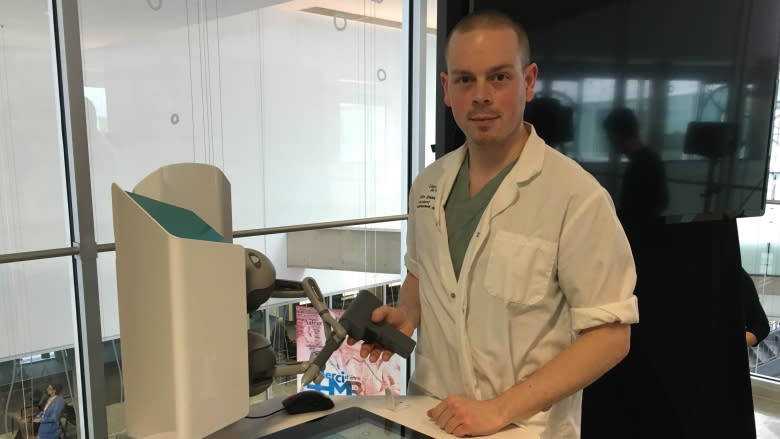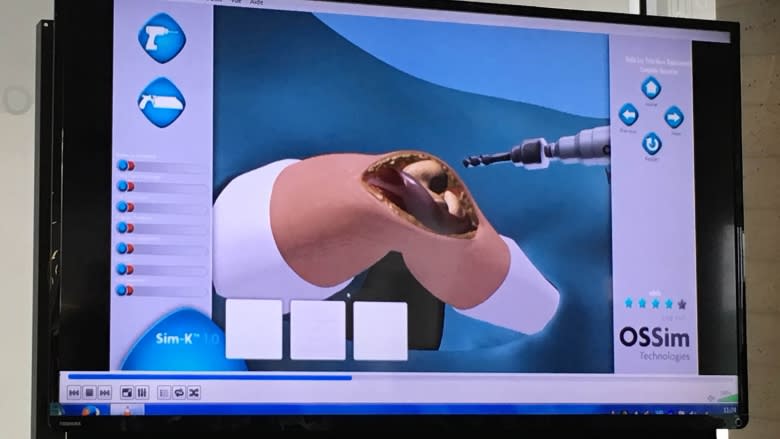Montreal-made virtual reality simulator helps train young surgeons
It may look like a video game, but a new virtual reality knee surgery simulator is built to teach essential skills.
The Montreal-made simulator, known as the SIM-K, allows young surgeons to learn how to perform complicated knee replacements — without picking up a saw or drill.
Félix Brassard, a fifth-year medical resident in orthopedic surgery at Maisonneuve-Rosemont hospital, tested out the simulator on Thursday between visits with patients.
'A realistic feeling'
Grasping a plastic tool, he cut carefully into a computer-generated kneecap on a screen.
"There's a realistic feeling about the instruments… when you move around the knee, if you hit the bone, you feel a firm sensation," he said.
"I think it's going to give some good tips and tricks to residents."
Brassard said he thinks that using the SIM-K will cut down on the jitters that usually come with attempting new procedures like knee replacements.
Building self-assurance is exactly what the simulator's creators are hoping to do, said André Blain.
Blain, who works with the company behind the SIM-K, Ossim Technologies, said he's hoping it can change the way knee replacement surgery is taught.
"[The goal] is to build the confidence and the skills of the resident prior to going into the operating room," he said.
Dr. Mark Isler, an orthopedic surgeon who helped develop the tool, said practice on the simulator will also benefit patients, explaining that there is a "small but identifiable risk to the patient [when] a novice is working on them."
The SIM-K comes as the result of a year-and-a-half collaboration between medical schools, hospitals and programmers.
A model for medical teaching
The company says it's the first simulator in the world that allows doctors to practice open-knee surgery, though simulators for non-invasive knee surgeries already exist.
The tool lets surgeons build their skills through different "levels," practicing simpler procedures first before moving on to knee replacements.
It's a model for medical teaching that Dr. Isler believes will catch on.
"I think [virtual reality simulators] will probably become a norm, at least for Canadian Universities," he said.
So far, only ten SIM-K units exist.
Blain hopes that this will soon change, noting that reception to the tool has been good.
"Harvard Medical School has said they are very excited about it," he said.

 Yahoo Movies
Yahoo Movies 

